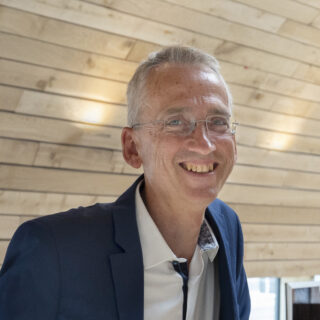
Sustainability in is driving innovation, efficiency and long-term value for this rapidly growing sector. This shift is critical in energy hungry Data Centres.
Sustainability has moved beyond regulatory compliance – it’s now central to business strategy. The data centre sector is under pressure to shape a low carbon, resilient future. This is on the back of intensifying environmental and evolving market expectations and is redefining the role of engineering.
From Compliance to Competitive Advantage
Clients are increasingly focused on how their buildings perform – not just in terms of cost and quality but also energy use, emissions and long-term resilience. Consequently, engineering firms are under pressure to integrate carbon reduction, resource efficiency and environmental responsibility into every stage of the project lifecycle.
" Net zero energy design, smart monitoring systems and circular material strategies are becoming standard in modern engineering practices. These are not just environmental decisions – they are strategic business moves.
Sustainable Data Centres: A Case in Point
Demand is growing for facilities that meet both technical requirements and sustainability standards.
New approaches are enabling this dual goal:
- Liquid cooling and free cooling reduce energy used for temperature control by leveraging natural or more efficient systems.
- AI powered energy management helps optimise consumption based on real-time conditions.
- Renewable energy integration, especially solar and wind, cuts reliance on fossil fuels and supports greener operations. These innovations are increasingly being prioritised to meet sustainablity targets, and also to reduce operating costs and improve long term performance.
Material Matters: Innovation
Construction is one of the largest contributors to global emissions and material choices have a major impact on a building’s footprint. Sustainable engineering also means rethinking the materials we use.
" By choosing better materials for Data Centre design, engineers can drastically reduce the carbon cost of buildings from the ground up.
These lower carbon materials can be:
- Green concrete, using industrial by-products, lowers embodied carbon without compromising durability.
- Recycled steel offers a structural solution with a significantly smaller environmental impact.
- Phase change materials (PCMs) help regulate indoor temperature naturally, reducing the need for mechanical systems.
- Natural insulation made from cellulose, wool or cotton replaces synthetic options with sustainable alternatives.
- Biomaterials, including certified wood, bamboo and compostable bioplastics, offer alternatives with a lower environmental impact.
Barriers and Opportunities
Scaling sustainable solutions across projects and geographies still poses real challenges. High upfront investment, inconsistent standards and cultural or institutional resistance often stand in the way. Outdated regulations and the complexity of integrating new technologies can also slow progress.
But these same challenges open the door to innovation.
" Forward looking engineering firms are turning constraints into catalysts – finding smarter ways to deliver sustainability at scale.
Those who invest early in accessible, efficient solutions are already gaining ground competitively.
Deerns is in a unique position to drive this transformation. Beyond delivering technical solutions, we are now engaging with clients on their specific needs, navigating evolving regulations and leading in the adoption of low impact strategies. This involves:
- integrating environmental considerations from the design phase
- adapting technologies to local conditions
- building solutions that remain technically and economically viable over time.
Equally important is training professionals who can manage this complexity and deliver real world results.
As the global market shifts toward decarbonisation and resource conscious development, the demand for sustainable engineering will accelerate. We will see increased regulatory pressure, greater public awareness and more investors making decisions based on environmental performance.
Engineering as a Transformative Force
Deerns’ impact extends beyond technical expertise – we are key enablers of innovation and trusted advisors in helping clients meet complex environmental challenges.
By delivering scalable, cost-effective solutions, we support clients in meeting sustainability goals, improving efficiency and managing resources with long term value in mind. This leadership includes embedding sustainability from the earliest design stages, tailoring technologies to local conditions and interpreting evolving regulations to ensure compliance with purpose.
Sustainability is no longer an optional feature – it’s a strategic business imperative. Firms that prioritise it will gain global relevance, attract investment and set new industry standards.
This marks a lasting shift: from compliance-driven action to integrated, future ready thinking. Through strong collaboration across sectors, engineering can become a driving force – not only in adapting to global challenges but in creating a resilient, balanced world. The industry now has the opportunity to lead with purpose, combining technical insight with environmental responsibility to design systems that serve both people and planet.









































